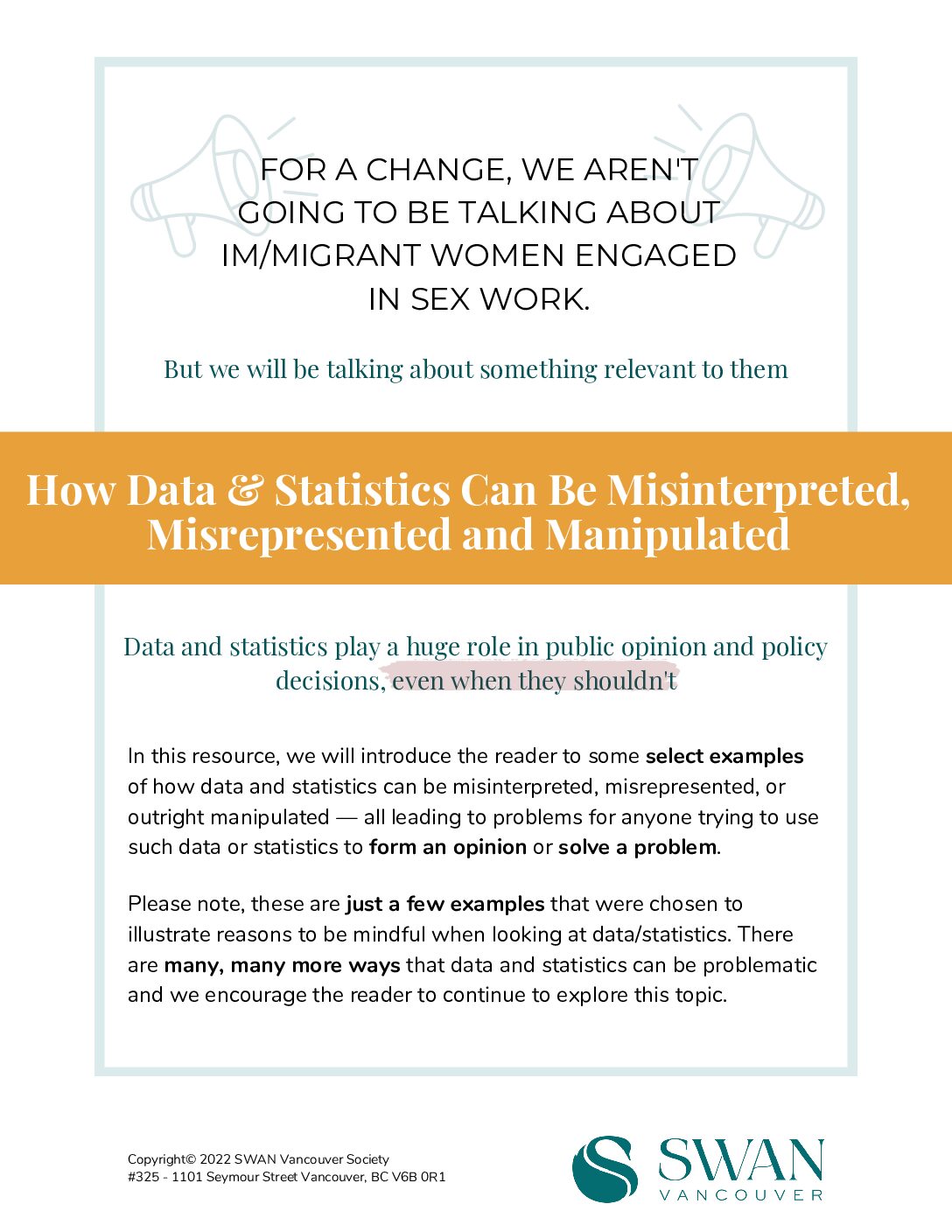For a change, we aren’t going to be talking about im/migrant women engaged in sex work…
Instead, we’ll be talking about some of the ways data and statistics can be misleading (both intentionally and unintentionally).
But what does this have to do with SWAN and the women we serve?
Data and statistics can be easily misinterpreted, misrepresented or even outright manipulated. When this happens, people can get the wrong idea.
Incorrect conclusions can be drawn and applied to ineffective policies that end up harming marginalized groups—such as im/migrant sex workers.
Statistics can be presented with insufficient context, leading people to believe something about a vulnerable group without understanding the complex and nuanced processes working in the background.
And sometimes data is outright manipulated to try and evoke a specific reaction from viewers, often in order to push a certain agenda or benefit a particular group over another.
All of these things can have a profound impact on people like im/migrant sex workers, who struggle to tell their own side of the story due to criminalization and immigration restrictions on sex work. This is why it’s so important to learn how easily statistics can fail to tell the whole story so you can spot the signs of bad data or manipulation.
See here for a resource on the problems with anti-trafficking ‘facts’ and statistics, created by two subject matter experts and legal scholars.
Don’t be paranoid—not all data is bad and not all statistics are untrustworthy—but do get educated on the difference.
for the full list of resources

